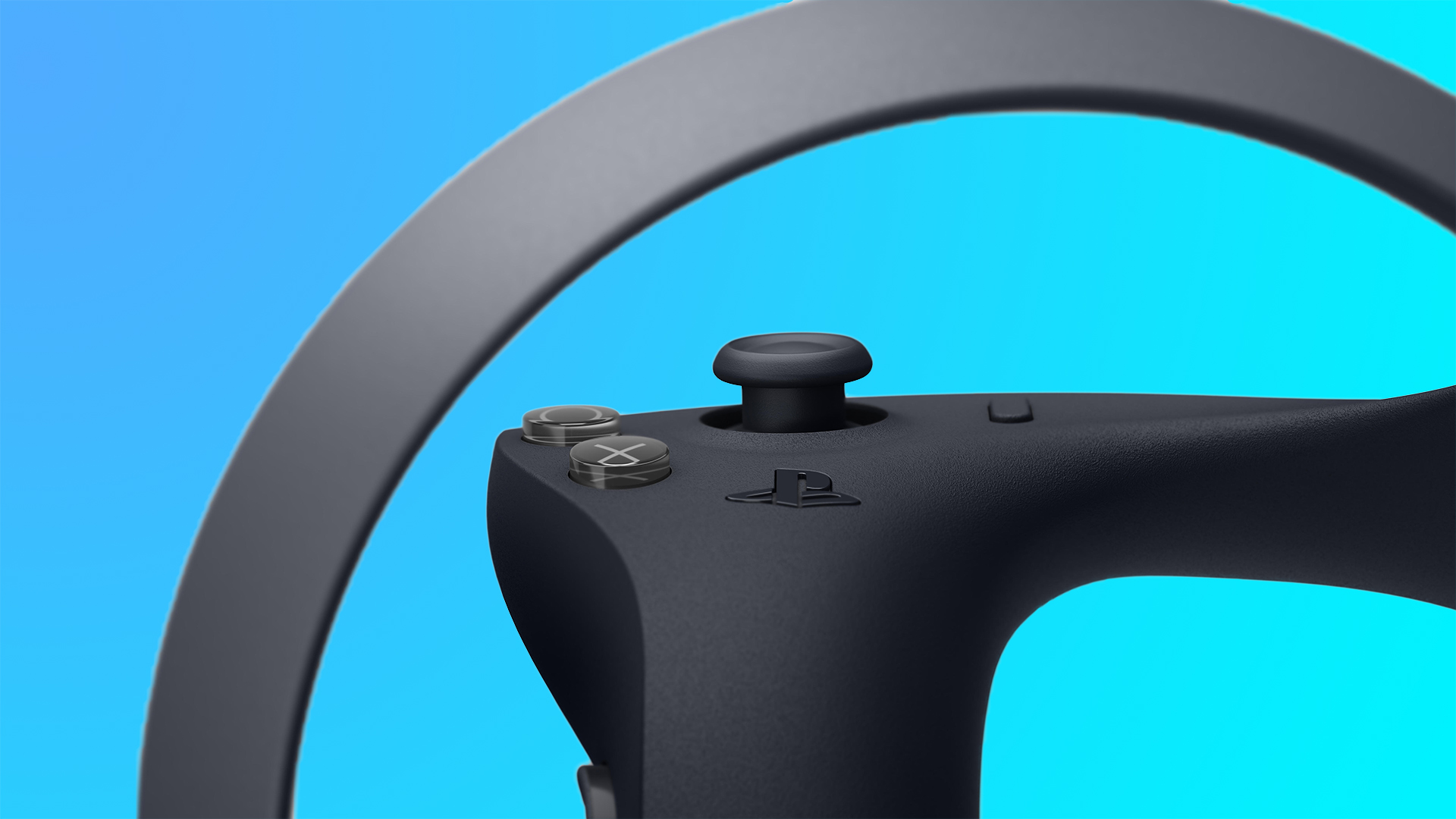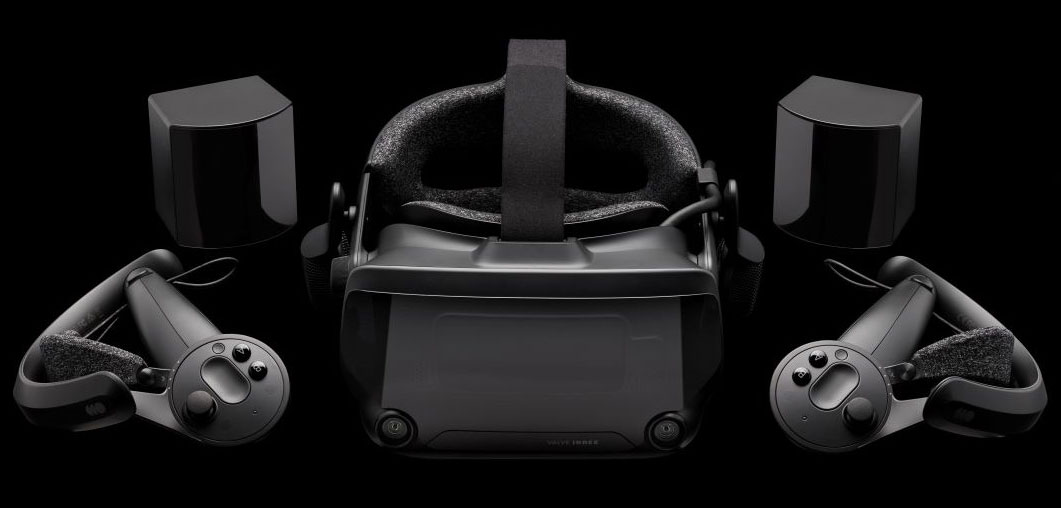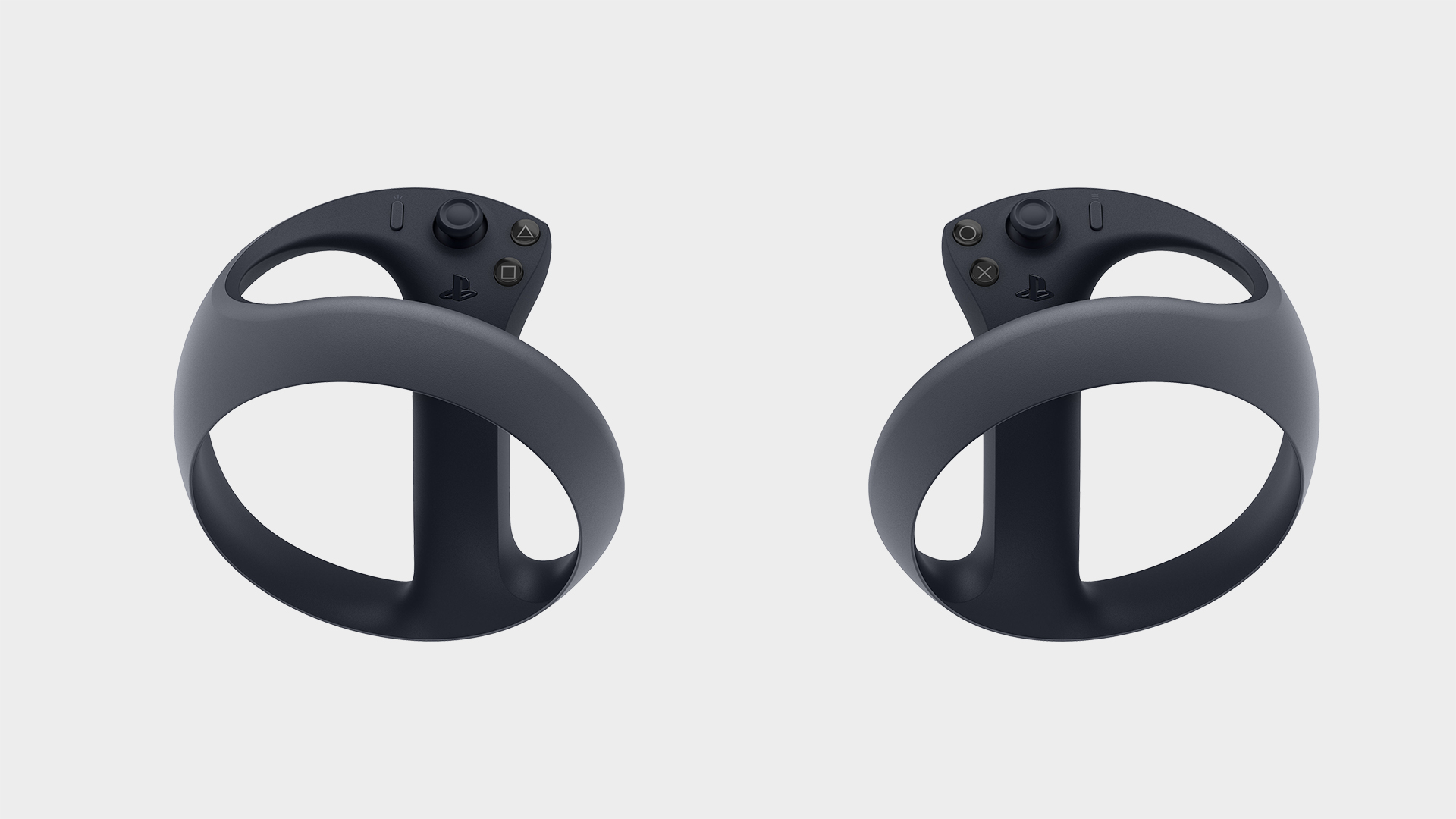Sony's getting serious about VR on PS5, and that's great news for everyone
Everyone wins, even PC VR enthusiasts.

Sony has revealed what will become the first purpose-built VR controllers for its PlayStation consoles. PSVR was a big success back with the PlayStation 4, and Sony has promised to revamp it and rerelease a bigger, better system on PS5. But this time there's a key difference: No more dreadful PlayStation Move controllers.

Best VR headset: which kit should you choose?
Best graphics card: you need serious GPU power for VR
Best gaming laptop: don't get tied to your desktop in VR
Sorry if you're a Move fan; these aging lightsticks just aren't it when it comes to VR controllers. They are great for Sportsfriends, I'll admit, but VR needs something with a little more dynamism. We've had a few swings at getting that mix right over in PC VR land, finally landing on two popular designs: the Valve Index Controllers and the Oculus Quest 2 controllers. Both have their pros and cons.
One look at the next-gen PSVR controller, and it's clear that Sony has taken notice with a design not all that dissimilar to either of the two.
The next-gen VR controllers come with haptic feedback; adaptive triggers, which are perhaps a given with the DualSense; finger touch detection, which we've seen become a bit of a standard in VR controllers nowadays; and genuine tracking that doesn't rely on visible light.
This all says to me that Sony is looking to take PSVR to the next level. That could be great news for the wider VR ecosystem, too, as PSVR swiftly became one of the biggest VR systems globally when it first came out and is still heaps of users' point of entry into virtual reality.
"SIE’s Product, Engineering, and Design teams have collaborated to build our new VR controller from the ground up with a goal of making a huge leap from current-gen VR gaming," a Sony blog post reads. "We’re thrilled with the controller we developed, but what matters now is how game creators will take advantage of the features to design the next generation of VR experiences. Prototypes of our new VR controller will be in the hands of the development community soon, and we can’t wait to see what ideas they come up with and how the controller helps bring their imagination to life!"
Unfortunately, the PSVR 2 release date won't be this year, but 2022/2023 could be likely candidates considering PlayStation is willing to talk about its next-gen VR system already.
The biggest gaming news, reviews and hardware deals
Keep up to date with the most important stories and the best deals, as picked by the PC Gamer team.

As for Sony's main competitor, Microsoft has previously dipped a toe into VR on the PC with Windows Mixed Reality, but has left its consoles out of the running so far. However, it's long been rumoured to be considering making such a move on console, and a recent screenshot from IGN Italy had further alluded to the possible development of an Xbox headset behind the scenes.
But Microsoft later made it clear that was all just one big misunderstanding, telling IGN "The copy in this error message is inaccurate due to a localization bug. VR for console is not a focus for us at this time."
Furthermore, back in 2019, yours truly wrote an article for my previous haunt, PCGamesN, quoting Phil Spencer saying "no one's asking for VR" on Xbox.
Microsoft may feel like it's missing a trick in VR with its latest consoles eventually, but for now it seems happy going without. At least on Xbox, anyways, the company is surprisingly active in AR development elsewhere.

Jacob earned his first byline writing for his own tech blog. From there, he graduated to professionally breaking things as hardware writer at PCGamesN, and would go on to run the team as hardware editor. He joined PC Gamer's top staff as senior hardware editor before becoming managing editor of the hardware team, and you'll now find him reporting on the latest developments in the technology and gaming industries and testing the newest PC components.

